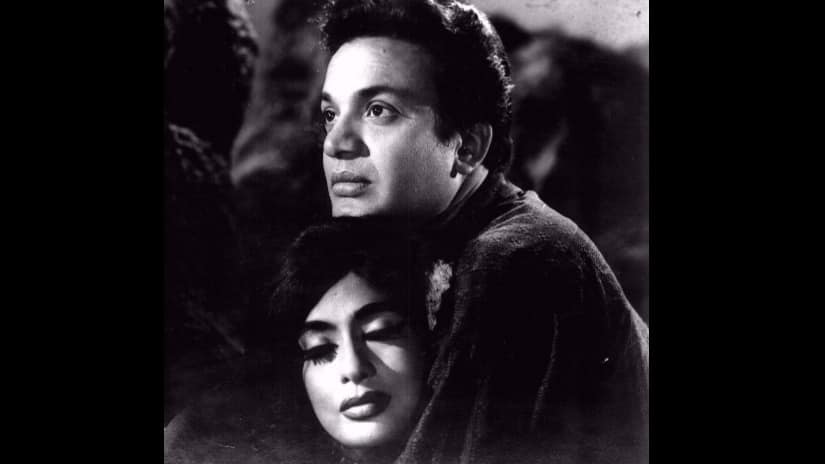It was the golden age of Bengali cinema. While its elder cousin in Mumbai was busy portraying its female lead as a dolled up, over-glamoured sight for sore eyes who can dance, sing, play badminton, attend parties and sit in a temple with her hands folded — all with equal ease and feminine grace — the film industry in Bengal was quietly producing some of the strongest female characters that Indian audiences had seen on screen; characters whose strength came from within, and who did not need the broad shoulders of their male counterparts to support themselves. There was a time when people in Bengal used to go to the movies to watch these characters, a glorious era when female stars filled theatres for their acting and not for their sex appeal. It was at such a time when Supriya Chowdhury (also known as Supriya Devi) appeared on the screen with a calm reserve never seen before, winning the hearts of her audiences — men and women alike. That was then, in the sixties. But her enduring charm continued to enthrall audiences well into the current decade, as she became everyone’s favourite mother or grandmother on screen, till the curtains dropped when she succumbed to a cardiac arrest in the early hours of Friday, 26 January 2018. [caption id=“attachment_4322449” align=“alignnone” width=“825”]  Supriya Devi with Uttam Kumar[/caption] Supriya Chowdhury was born in Myitkyina, Burma. Her father was a lawyer by profession and a dramatist by passion. Supriya was only seven years old when she started acting in her father’s plays. She was a skilled dancer too, in fact dance was her first passion. In 1942, during the Japanese occupation, Supriya and her family were forced to flee Burma and arrive in Kolkata. She debuted in films in 1952, with Basu Paribar, starring Bengal’s most famous star Uttam Kumar. In later years, of course, she did several films with Uttam Kumar, as heroine.
Through her roles, Supriya Chowdhury brought a fresh breath of air into the world of Bengali cinema. Although she played a wide range of characters, they were inevitably strong ones, ones that refused to play second fiddle to the hero.
In Bilambita Loy, for instance, she was an acclaimed singer, struggling to deal with the downward spiral of her painter husband who had been frustrated by his own failure and disillusioned with her continuous success. In Suno Baranari, she played the vain daughter of a rich lawyer, who despises the ways and means of a young commoner entrusted to escort her on a journey from one town to another, eventually seeing the man’s honesty for what it is. In Mon Niye, she played twin sisters who get embroiled in a series of deaths which eventually turn out to be pre-meditated murders. None of these roles were your average run-of-the-mill ones that heroines of the day were usually expected to assay. Instead, they were written with due consideration to extracting the best creative prowess that the actress possessed, and Supriya Chowdhury excelled in all of them, making each of these roles her own. However, her most notable performance was perhaps in Ritwik Ghatak’s Meghe Dhaka Tara, in which she played a young woman who is constantly exploited by everyone she comes in contact with, including her own family and the very people she loved. Her performance in the film is deservedly considered to be one of the finest by any actress in the history of Indian cinema. Today, Meghe Dhaka Tara is widely considered to be one of the best films ever to come out of India, and Supriya Chowdhury’s contribution to such prestigious acclaim is undeniable. Tragic as it is, controversy had always been a constant companion of the actress. She was promptly tagged as the ‘homebreaker’, when Bengal’s greatest superstar Uttam Kumar left his family to move in with her. It is strange, when you think about it, that the man in the relationship – the star of the millennium – was never given any such tag by the media or the masses. It was only she who was severely criticised, through the prime of her life. And that goes to show how, despite all the powerful roles of strong women that Supriya Chowdhury played in her career, she was still perceived as the lesser of the two in the relationship between a man and a woman. In a way, then, more than her work, it was her life that helped our society see an ugly reflection of itself and its double standards in the mirror. In death, we hope, she will find her peace. Bhaskar Chattopadhyay is an author and translator. His translations include 14: Stories That Inspired Satyajit Ray, and his original works include the mystery novels Patang, Penumbra and Here Falls The Shadow.


)
)
)
)
)
)
)
)
)



